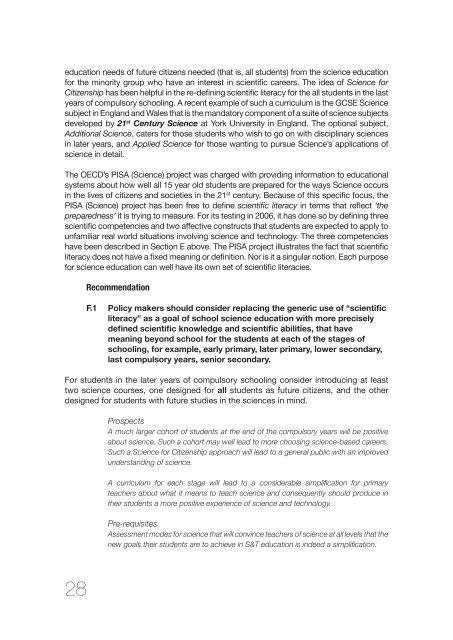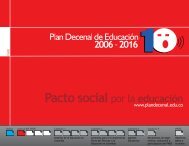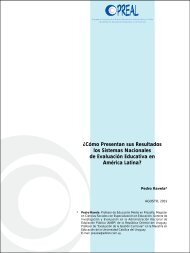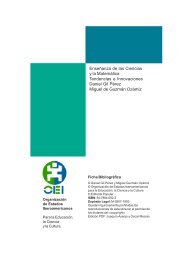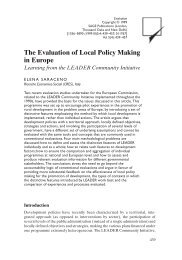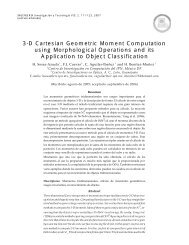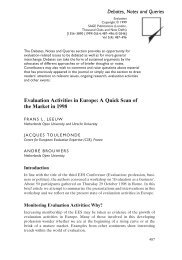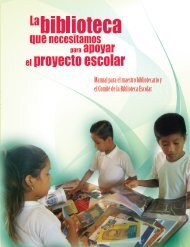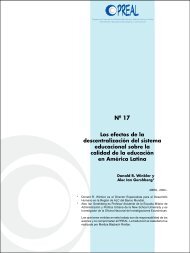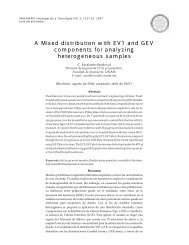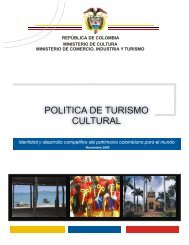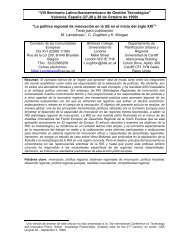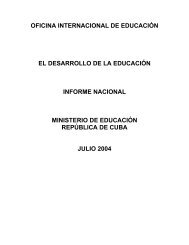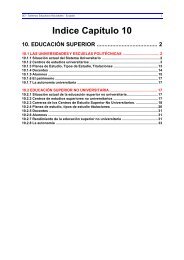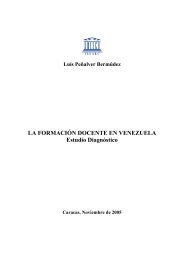Science education policy-making: eleven emerging issues; 2008 - OEI
Science education policy-making: eleven emerging issues; 2008 - OEI
Science education policy-making: eleven emerging issues; 2008 - OEI
You also want an ePaper? Increase the reach of your titles
YUMPU automatically turns print PDFs into web optimized ePapers that Google loves.
<strong>education</strong> needs of future citizens needed (that is, all students) from the science <strong>education</strong><br />
for the minority group who have an interest in scientific careers. The idea of <strong>Science</strong> for<br />
Citizenship has been helpful in the re-defining scientific literacy for the all students in the last<br />
years of compulsory schooling. A recent example of such a curriculum is the GCSE <strong>Science</strong><br />
subject in England and Wales that is the mandatory component of a suite of science subjects<br />
developed by 21 st Century <strong>Science</strong> at York University in England. The optional subject,<br />
Additional <strong>Science</strong>, caters for those students who wish to go on with disciplinary sciences<br />
in later years, and Applied <strong>Science</strong> for those wanting to pursue <strong>Science</strong>’s applications of<br />
science in detail.<br />
The OECD’s PISA (<strong>Science</strong>) project was charged with providing information to <strong>education</strong>al<br />
systems about how well all 15 year old students are prepared for the ways <strong>Science</strong> occurs<br />
in the lives of citizens and societies in the 21 st century. Because of this specific focus, the<br />
PISA (<strong>Science</strong>) project has been free to define scientific literacy in terms that reflect ‘the<br />
preparedness’ it is trying to measure. For its testing in 2006, it has done so by defining three<br />
scientific competencies and two affective constructs that students are expected to apply to<br />
unfamiliar real world situations involving science and technology. The three competencies<br />
have been described in Section E above. The PISA project illustrates the fact that scientific<br />
literacy does not have a fixed meaning or definition. Nor is it a singular notion. Each purpose<br />
for science <strong>education</strong> can well have its own set of scientific literacies.<br />
Recommendation<br />
F.1 Policy makers should consider replacing the generic use of “scientific<br />
literacy” as a goal of school science <strong>education</strong> with more precisely<br />
defined scientific knowledge and scientific abilities, that have<br />
meaning beyond school for the students at each of the stages of<br />
schooling, for example, early primary, later primary, lower secondary,<br />
last compulsory years, senior secondary.<br />
For students in the later years of compulsory schooling consider introducing at least<br />
two science courses, one designed for all students as future citizens, and the other<br />
designed for students with future studies in the sciences in mind.<br />
Prospects<br />
A much larger cohort of students at the end of the compulsory years will be positive<br />
about science. Such a cohort may well lead to more choosing science-based careers.<br />
Such a <strong>Science</strong> for Citizenship approach will lead to a general public with an improved<br />
understanding of science.<br />
A curriculum for each stage will lead to a considerable simplifi cation for primary<br />
teachers about what it means to teach science and consequently should produce in<br />
their students a more positive experience of science and technology.<br />
Pre-requisites<br />
Assessment modes for science that will convince teachers of science at all levels that the<br />
new goals their students are to achieve in S&T <strong>education</strong> is indeed a simplifi cation.<br />
28


